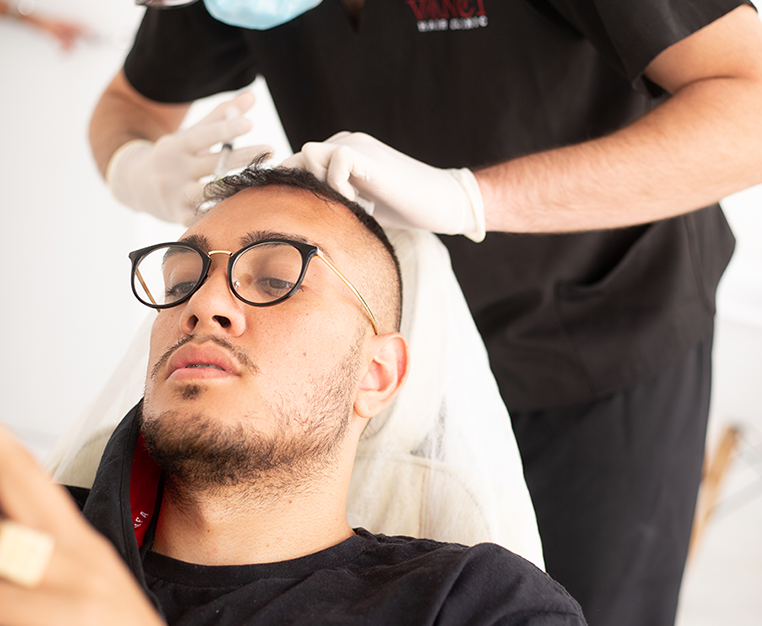Why was hair loss ever a taboo subject? The answer is that it wasn’t so much a taboo subject, more a subject to be ridiculed. That scorn, however, made hair loss a taboo subject for anyone experiencing it. Who wants to be laughed at, after all? And make no mistake, people have been laughing at baldness since Roman times. In the early twentieth century, the laughter was often generated by attempts to cover up baldness with ill-fitting wigs. Pioneering hair transplants with their unnatural-looking hair plugs provided more material for humour. Only recently has it been possible to discuss hair loss and treatment in a mature, non-prejudicial way.
We’re going to consider why it’s finally okay to talk about these issues. Keep scrolling to learn more!
Why the Taboo?
Long hair, and the youthfulness associated with it, has always been viewed as a symbol of strength and virility in men and fertility in women. Baldness was seen as an indication of ageing, a sign portending weakness and sexual unattractiveness. Attempts to hide the condition with wigs or combovers attracted derision. Hair loss sufferers became a figure of fun, the butt of jokes. Small wonder, then, that people didn’t want to discuss it.
That reluctance has meant that people have suffered hair loss in silence. One of its most serious side effects, the loss of self-esteem, has gone largely unnoticed until recently. Studies have shown that this is a very real problem that can affect a person’s capacity to do their job or sustain relationships. Given that, it’s great news that hair loss can finally be discussed without mockery, but what’s happened to bring about the change?
Let’s Talk Celebrity
One of the big drivers for change has been that bunch of much-maligned people known as celebrities. These days, celebrity is an open and fluid category. Twenty-four-hour television, wall-to-wall sports coverage and the arrival of social media mean that anyone can be a celebrity. The idea that everyone can be famous for fifteen minutes, often attributed to Andy Warhol, has never been more true than for this generation.
Academic studies have debated the issue of whether young athletes should or should not be role models. The fact is, however, that whether they welcome the status or not, many of these people have become role models and influencers for wider society.
Why Does This Matter?
Scientists believe that our brains have evolved to copy and imitate those we perceive as successful. It seems that we listen more to what famous people say, which is exactly why well-known faces are used to spearhead health promotions and humanitarian appeals.
So, when someone with a high profile talks about their problems with hair loss or reveals that they’ve had a treatment, it resonates with the wider public. The more this happens, the easier it becomes for everyone to talk about hair loss. And it happens quite regularly, these days. Footballers who have had hair transplants include Jordi Alba, Aaron Ramsdale, David Silva, Cesc Fabregas and Wayne Rooney, to name just a few.
TV and film star, James Nesbitt, has been honest about the effect hair loss had on him and his career. Actor Ashley Tisdale talked recently about how she’s addressed her alopecia through PRP and changing her diet. Documentary maker Louis Theroux spoke about alopecia making his beard thin and patchy.
Hearing people talk about different causes of hair loss and various treatments has major educational value. More importantly, it adds validity to the whole discussion around the issue. It creates a more tolerant atmosphere; young people with alopecia, for example, are less likely to be treated as some kind of oddity when their peers have heard someone like Jada Pinkett Smith talk about her problems.
Famous faces empower people in the wider community to face up to their own hair loss issues and address them. They create a more civilised environment by showing that hair loss can happen to anyone and that seeking treatment for it is perfectly normal.
Conclusion
We shouldn’t even have to say this, but hair loss is not a shameful matter. Talking about it and the various ways of treating it should not be taboo subjects. Celebrities who discuss their hair loss problems in a candid way help to break down any stigma still surrounding the subject. Thankfully, more and more people are waking up to this.
Whether you are male or female, young or old, you should seek advice if you have concerns about the condition of your hair. Vinci Hair Clinic can help. We are one of the largest hair restoration organisations in the world with clinics right across the globe. We offer a free, no-obligation consultation to all our new clients, either in person or using photographs over the phone. Get in touch and book your appointment today!



